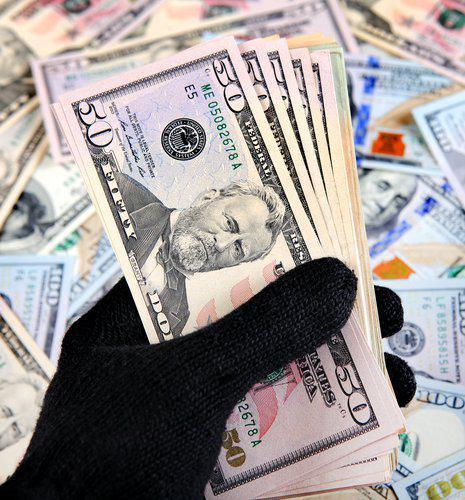Recent Blog Posts
How to Navigate the Murky Waters of Divorce - Part 4
 Eight Things to Keep in Mind About Property Division
Eight Things to Keep in Mind About Property Division
The one common element among all actions for divorce is property division. While custody and placement can involve significant emotional issues, property division issues are all financial. This is not to say that dividing the "stuff" will not evoke some very emotional responses. "You will only get my great great grandfather's pocket watch by prying it from my cold dead hands" is not an uncommon sentiment when dividing up the household property.
Property division is a very broad term but essentially it means the determination, valuation and division of the things you have collected both before and during the marriage. This can include:
- Real estate
- Retirement accounts
- Personal property
- Furniture
- Jewelry
- Family pictures
- Bank accounts
Ask Gimbel, Reilly, Guerin & Brown, LLP: Divorce vs. Separation
 What is the difference between a divorce and a legal separation?
What is the difference between a divorce and a legal separation?
In essence, a divorce is a legal end to a marriage contract, while a legal separation involves many of the same legal proceedings as divorce, however, the two parties involved are not divorced at the end of the proceedings and are prohibited to re-marry another person. In both actions the court will order the division of marital property, decide maintenance (alimony) issues and issues involving children such as custody, placement (visitation) and child support.
A legal separation is granted by the courts when the marital relationship is deemed broken. Many people choose legal separation because of personal or religious beliefs that do not allow divorce. In cases where one person is not in favor of the divorce, the court will determine whether a judgment of legal separation or a judgment of divorce is granted.
Negligence in Nursing Homes
 As the population of the United States ages, more and more people are spending their final years in nursing homes. Unfortunately, not all nursing homes are created equal, and some nursing homes do the unthinkable: neglect your loved one. This happens with enough regularity that you need to be aware of all the warning signs of neglect if you have a loved one in a nursing home.
As the population of the United States ages, more and more people are spending their final years in nursing homes. Unfortunately, not all nursing homes are created equal, and some nursing homes do the unthinkable: neglect your loved one. This happens with enough regularity that you need to be aware of all the warning signs of neglect if you have a loved one in a nursing home.
The 2011 Wisconsin Act 2, a tort reform law enacted in 2011, prohibits families from using state health investigation records in state civil suits filed against nursing homes. It also makes state health records inadmissible in criminal cases against healthcare providers accused of neglecting patients or accused of abusing patients. Proving a nursing home or the workers in the nursing home neglected your loved one can be an uphill battle in the wake of this law. You should report any suspected neglect or abuse of your loved one in a nursing home to the Wisconsin Department of Health Services, and contact a personal injury attorney to help further protect your loved one.
Elder Abuse: Can You Sue a Nursing Home for Wrongful Death, Abuse, or Negligence?
 According to statistics, elder abuse occurs in one out of three nursing homes. Often, that abuse is experienced at the hands of staff, but a recent study has also revealed that resident-on-resident abuse occurs frequently as well. One woman, suffocated and strangled to death, is an example of the latter. But just how much ammunition do you or your loved ones have against a nursing home if wrongful death, abuse, or negligence has occurred? The answer to that question may lie in the paperwork.
According to statistics, elder abuse occurs in one out of three nursing homes. Often, that abuse is experienced at the hands of staff, but a recent study has also revealed that resident-on-resident abuse occurs frequently as well. One woman, suffocated and strangled to death, is an example of the latter. But just how much ammunition do you or your loved ones have against a nursing home if wrongful death, abuse, or negligence has occurred? The answer to that question may lie in the paperwork.
Roommate Charged with Murder, Nursing Home Never Implicated
Despite alleged documents that stated the deceased’s roommate was a risk to herself and/or others, authorities focused their attention on the resident actually responsible for the 100-year-old woman’s death rather than investigating the facility. Charged with murder and then deemed unfit to stand trial because she suffered from dementia, she was eventually committed to a state hospital. But the nursing home responsible for their care was never implicated, either criminally or otherwise.
Boating Accidents in Wisconsin
 Accidents don’t just happen on land, especially in places like Wisconsin, where there is an abundance of waterfront property and watercraft for travel and recreation. There are over 600,000 boats registered in Wisconsin alone, and during the summer, there are hundreds of thousands of additional boats that navigate Wisconsin waters from neighboring Minnesota, Iowa, and Illinois. There are multiple fatalities and even more injuries every year as a result of boating accidents, and in many boating accident cases, the operator of the boat at fault may not have taken any safety courses.
The fact that so many people are maneuvering large vessels in limited spaces, often times without proper training or safety classes, means that boating accidents happen with regularity. This often leads to civil litigation in order to recover compensation for any serious injuries suffered in the accident on the water.
Common Boating Injuries
There are many potential legal claims that arise from boating-related incidents, including property damage claims. Personal injuries claims arise most often, however, and in a number of different ways. Often there is a collision between recreational watercraft, like jet skis, or a collision between one recreational watercraft and one boat. Many boating personal injury claims arise from accidents, illness or death sustained as a result of improper safety measures on a cruise ship. No matter what the circumstances were that gave rise to your personal injury claim for a boating-related injury, it is guaranteed to be extremely complex, as maritime law comes with many additional considerations not present in land based actions.
Special Concerns When Bringing Boating Claims
When accidents occur that involve maritime law, there are often complex and unique legal issues. Some legal actions will involve only Wisconsin law, if they occur entirely within the borders of the state and in Wisconsin waters. However, sometimes accidents occur outside of Wisconsin’s borders, or in between Wisconsin and bordering state, and in these situations, other state laws and even federal laws can be implicated in a subsequent lawsuit. Finally, if your boating accident occurred out at sea, there may even be international legal implication.
We Can Help You Today
Accidents don’t just happen on land, especially in places like Wisconsin, where there is an abundance of waterfront property and watercraft for travel and recreation. There are over 600,000 boats registered in Wisconsin alone, and during the summer, there are hundreds of thousands of additional boats that navigate Wisconsin waters from neighboring Minnesota, Iowa, and Illinois. There are multiple fatalities and even more injuries every year as a result of boating accidents, and in many boating accident cases, the operator of the boat at fault may not have taken any safety courses.
The fact that so many people are maneuvering large vessels in limited spaces, often times without proper training or safety classes, means that boating accidents happen with regularity. This often leads to civil litigation in order to recover compensation for any serious injuries suffered in the accident on the water.
Common Boating Injuries
There are many potential legal claims that arise from boating-related incidents, including property damage claims. Personal injuries claims arise most often, however, and in a number of different ways. Often there is a collision between recreational watercraft, like jet skis, or a collision between one recreational watercraft and one boat. Many boating personal injury claims arise from accidents, illness or death sustained as a result of improper safety measures on a cruise ship. No matter what the circumstances were that gave rise to your personal injury claim for a boating-related injury, it is guaranteed to be extremely complex, as maritime law comes with many additional considerations not present in land based actions.
Special Concerns When Bringing Boating Claims
When accidents occur that involve maritime law, there are often complex and unique legal issues. Some legal actions will involve only Wisconsin law, if they occur entirely within the borders of the state and in Wisconsin waters. However, sometimes accidents occur outside of Wisconsin’s borders, or in between Wisconsin and bordering state, and in these situations, other state laws and even federal laws can be implicated in a subsequent lawsuit. Finally, if your boating accident occurred out at sea, there may even be international legal implication.
We Can Help You Today
For all of the reasons set forth above, personal injury claims that arise as a result of boating accidents are more complex than ordinary personal injury claims, and it is critical that you contact an experienced Milwaukee personal injury attorney who can traverse not only Wisconsin law, but other state’s maritime laws and even federal laws when necessary. Call us at 414-271-1440 or send us an e-mail today for a consultation.
Remedies for Civil Fraud, Theft and Misrepresentation in Wisconsin
When the economy is tough it can push people to do desperate things. As businesses are struggle, sometimes people in places of trust act in a manner that may or may not be indicative of their personality. Wisconsin business owners, customers or clients can become the victim of financial misconduct at the hands of a trusted fiduciary. What types of remedies exist in Wisconsin so that a person can recover if they are a victim of theft or misrepresentation?
This, of course depends solely on the scenario and facts in the incident. Traditionally, if you were involved in as a victim or perpetrator of financial fraud or malfeasance, you could be the subject of a number of Wisconsin common law tort claims such as misrepresentation, conversion, fraud, breach of fiduciary among others. Not to mention one can open themselves up to criminal prosecution. That being said, the economic loss doctrine, which has been embraced by Wisconsin courts, has made pursuing common law tort claims against businesses, individuals and other fiduciaries more difficult when there is a specific contract for goods or products provided. Depending on the facts and situation it is not impossible; however, pursuing a common law tort claim can be more challenging for plaintiffs in these situations when a contract is present. With that in mind, there are a number of Wisconsin statutes that provide relief to victims of financial theft, fraud or malfeasance.
Wisconsin Shoplifting Charges Vary Widely
 Shoplifting is a common theft crime to be charged with, and in Wisconsin the penalties can range from non-criminal tickets to felony charges, depending on the value of what was taken. It is important to not only be familiar with the laws governing theft in Wisconsin, but also the laws specifically related to shoplifting. The law in this area is varied, and if you have been arrested for shoplifting, you need experienced legal help to guide you through the many regulations.
Shoplifting is a common theft crime to be charged with, and in Wisconsin the penalties can range from non-criminal tickets to felony charges, depending on the value of what was taken. It is important to not only be familiar with the laws governing theft in Wisconsin, but also the laws specifically related to shoplifting. The law in this area is varied, and if you have been arrested for shoplifting, you need experienced legal help to guide you through the many regulations.
Wisconsin Laws Governing Theft
There are a number of circumstances in which you may be charged by the prosecutor with theft. For example, intentionally taking the property of another without their consent and with the intent to deprive the owner permanently of possession of the property is one form of theft. Using fraud or deceit to obtain the title to property of another person is also theft under Wisconsin law, as is using or otherwise retaining possession of money through your employment or business without consent. Even intentionally failing to return personal property erroneously left on your premises can be theft. Shoplifting, also called retail theft, falls under the first category.
What Constitutes Theft or Larceny Charges in Wisconsin?
 At first glance, the term larceny (theft) might seem pretty straightforward. However, under Wisconsin state law, there are a number of actions that could constitute charges of theft. It is important to understand these statutes, and their definitions, when facing such charges. You may also find it beneficial to know what the consequences may be, should you be convicted.
Definition of Theft under Wisconsin State Law
In the state of Wisconsin, theft or larceny can be defined as any act that includes:
At first glance, the term larceny (theft) might seem pretty straightforward. However, under Wisconsin state law, there are a number of actions that could constitute charges of theft. It is important to understand these statutes, and their definitions, when facing such charges. You may also find it beneficial to know what the consequences may be, should you be convicted.
Definition of Theft under Wisconsin State Law
In the state of Wisconsin, theft or larceny can be defined as any act that includes:
- Intentionally taking the movable property of another person without their consent with the intent of permanently depriving them of that property;
- Converting the use of property from one person to another without the owner’s consent, including (but not limited to) doing so because of a person’s office or position;
Five Things to Know...About Your Civil Appeal in Wisconsin
 Do you think your civil case is appropriate for a civil appeal. Here are five things to think about before you file in the State of Wisconsin.
Do you think your civil case is appropriate for a civil appeal. Here are five things to think about before you file in the State of Wisconsin.
1. Not every order is appealable - You cannot appeal until there is a "final" order or judgment in your case. To be final, an order or judgment must dispose of the entire matter in litigation between you and the opposing parties.
2. You cannot appeal an oral ruling - To be appealable, an order or judgment must be in writing and entered in the court docket.
3. The 45/90 Day Rule - The deadline to appeal is 90 days from entry of the final order or judgment; HOWEVER, if your opponent issues a documents a notice of entry of judgment, the deadline is cut to 45 days.
4. Appellate deadlines are jurisdictional - A notice of appeal must be in the hands of the clerk of court in the county where your case was heard by the deadline. It is not enough to mail the document on the deadline. Therefore, a decision to appeal must be made to allow your lawyer sufficient time to prepare the documents and get them to the courthouse on time.
Frank Gimbel Weighs In on Apple vs. Samsung Case - Fox6 Legal Matters
There is a real battle brewing between tech giants Apple and Samsung with regard to new advances in both Smartphone and tablet technologies. As Gimbel points out, this intellectual property fight is taking place simultaneously in 80 cases, 10 countries and four continents. It will be interesting to see how it plays out in the US based case, which is primarily being fought in California's Silicon Valley. See the video below for more details into this interesting and potentially game changing clash.







